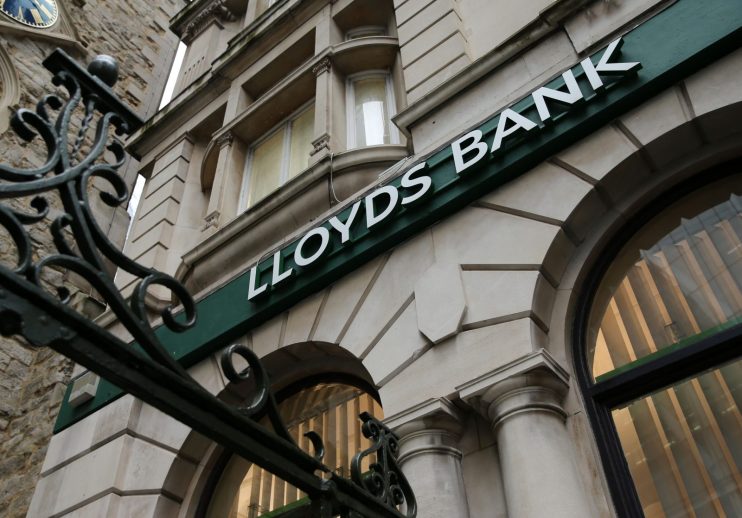Lloyds profit beats forecasts on pandemic mortgage boom

Lloyds posted a forecast-beating profit for the third quarter as Britain’s biggest domestic lender cashed in booming demand for mortgages and set aside a smaller amount to cover bad loans.
The bank returned to profitability in the three months to September after posting an unexpected loss in the first half. Lloyds reported a pre-tax profit of £1bn – well ahead of the average of £588m forecast by analysts.
Read more: Natwest and Lloyds signal willingness to bring back dividends
Virus mortgage boom boosts Lloyds
Lloyds booked new mortgage lending of £3.5bn during the period after receiving its biggest surge in quarterly home loan applications since 2008.
The spike in mortgage applications came as pent-up demand was released following lockdown and people rushed to cash in on the stamp duty holiday introduced on some properties before it ends in March.
Lloyds set aside a further £301m to cover expected loan defaults by customers – less than half the consensus forecast of £721m. The figure takes the total set aside by the bank this year to cover bad loans to £4.1bn.
“Although our performance has clearly been impacted by the pandemic and the associated challenging economic environment, I am pleased that we are now seeing an encouraging business recovery and, with impairments significantly lower, a return to profitability in the third quarter,” said chief executive Antonio Horto-Osario.
Shares in Lloyds rose as much as 4.09 per cent in morning trading following the results.
Hargreaves Lansdown analyst Susanna Streeter said Lloyds’ return to profitability was “no mean feat given the hurdles the bank has had to jump through the coronavirus crisis”.
She added that while the boom in mortgage lending was “encouraging”, but cautioned: “once the stamp duty holiday ends and given the fragile economic recovery, there are concerns the mini housing boom could turn into a bust, which would lead to a reversal of fortunes for this part of Lloyds’ business”.
Before the Open newsletter: Start your day with the City View podcast and key market data
Key balance sheet indicators improve
Lloyds’ net interest margin – the difference between the money it makes on lending and pays out on deposits – rose to 2.42 per cent, up from 2.4 per cent during the previous quarter.
The bank posted a 7.4 per cent return on tangible equity, while its core capital ratio – a key measure of financial strength – increased from 14.6 per cent to 15.2 per cent.
Chief financial officer William Chalmers said the board would make a decision on paying a dividend at the end of the year, if regulators lift a ban on payouts.
UK banks suspended their 2020 dividends earlier this year following pressure from the Bank of England to focus on shoring up their balance sheets and providing support to customers hit by the pandemic.
Analysts from Citigroup said Lloyds results boded well for the re-introduction of a dividend at its full-year results.
“We expect to see significant upgrades to 2020 consensus earnings on the lower impairment charge. We expect this will, to a much lesser extent, also be extrapolated into 2021,” they added.
Outlook ‘remains uncertain’, says Lloyds
Lloyds has provided 1.2 payment holidays to customers during the pandemic, and has lent out around £11bn under government coronavirus lending schemes.
The lender has an 18 per cent market share in support scheme lending, including a 21 per cent share of lending under the Bounce Back Loan Scheme.
Horto-Osario said that while outlook “remains uncertain”, the bank was well positioned for the future.
“Our customer-focused strategy and the strength of the group’s business model will allow us to continue to help Britain recover and play our part in helping to return the UK to prosperity,” he said.
Read more: Bank of England considering to permit banks to restart dividend payments next year
The bank is preparing for a leadership shake-up while it navigates the fallout from the coronavirus crisis.
Horto-Osario is set to step down next year, while Robin Budenberg will take over from Norman Blackwell as chairman on 1 January, Lloyds said. Horto-Osario said Budenberg and Blackwell were working together on the search for a new chief executive.